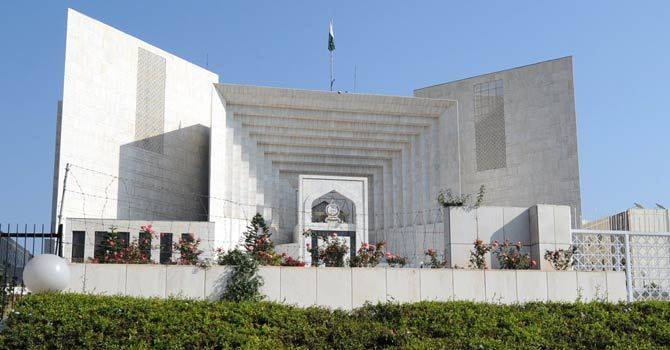The Roman Emperor Cicero famously remarked ‘Silent enim leges inter arma’ (For among times of arms, the laws fall mute). The phrase is epitomiszed by the State’s response, following the horrendous attack on the Army Public School, Peshawar. The Parliament, recognising the lacunas in the country’s criminal justice system enacted the 21st Amendment to the Constitution. The said amendment allowed military courts to try civilians accused of perpetrating terrorism in the name of a ‘religion or a sect’. Further, the amendment suspended the operation of fundamental rights to persons tried by military courts.
The said amendment was challenged before the Supreme Court of Pakistan. The Supreme Court, in the decision titled ‘District Bar Association v Federation of Pakistan’ affirmed the Parliament’s wisdom. The Court’s judgment was swayed by inter alia, the sunset clause enshrined in the aforesaid amendment. The said clause recognised that the amendment was enacted in view of a grave and unprecedented challenge and would thus cease to exist at the lapse of two years from its enactment. Subsequent convictions by these courts manifested blatant violations of not only fundamental rights enshrined in the constitution but also the principles of natural justice. The notion of ‘nemo judice in cause sua’ (no man shall be a judge in his own cause) was dispensed with, as members of the military courts not only prosecuted civilians but sat over their trials. Convictions by the military courts were challenged before the Supreme Court. The Supreme Court, however, had already capitulated. The Supreme Court, expressing the limitations on its jurisdiction to review judgments pronounced by military courts affirmed these convictions.
The 21st Amendment ceased to operate in January 2017. The recent spate of terrorist attacks across the country, however, has revived the debate about the efficacy of trials by military courts. An article titled ‘Consensus on Military Courts’ published in the Daily Dawn on 28 February 2017 reported that the government and opposition had reached a consensus regarding the amendment’s extension. The pervasive nature of the amendment and the court’s self-inflicted emasculation continues to render citizens vulnerable, floundering against the state’s high handed practices. The only available recourse is thus recourse to international customs and conventions. The provisions of International Covenant on Civil and Political Rights (ICCPR), being the foundational document on civil and political rights, therefore, become pertinent. Article 14 of the ICCPR guarantees individuals the right to a fair trial. Pakistan, despite being a signatory to the ICCPR, fails to safeguard the rights of individuals convicted by military courts.
Pakistan, hence, has become subject to the devastating effects of domestic laws that are incoherent with the international laws it has ratified.
In 2006, during the candidature elections of the Human Rights Council, Pakistan pledged to ratify all the treaties regarding the core human rights and successfully fulfilled her commitment by signing the UN Convention against Torture and Other Cruel, Inhuman or Degrading Treatment or Punishment (UNCAT), International Covenant on Civil and Political Rights (ICCPR) and ratified International Covenant on Economic, Social and Cultural Rights (ICESCR). Pakistan, however, shied from ratifying the First Optional Protocol for the ICCPR. The Protocol’s ratification would have enabled the Human Rights Committee to subject Pakistan to its enforcement mechanism, thereby allowing individuals to approach the Committee against the state’s excesses. The Optional Protocol allows individuals to communicate any complaints, assailing acts which violate their rights under the convention. The complaints should be filed after all domestic remedies have been exhausted. The complaint is forwarded to the relevant party who is obligated to respond within six months.
The ratification of the Optional Protocol becomes profoundly pertinent with the validation of military courts and trials thereunder. Recourse to the Convention against the pervasive actions of the State is the only way to salvage individual liberty. The threats we face are grave and unprecedented. What distinguishes us from the militants we wage war against, however, is our values, our respect for democracy, and plurality of ideas. While remembering who we are fighting against, many a great nations have had a proclivity to forget what we are fighting against. We are fighting against those who trample our laws and constitution under the weight of their feet. The question that the present crisis begs is whether we would fight them by protecting our values and identity, or would we too trample and obliterate these values in a bid to protect them?






